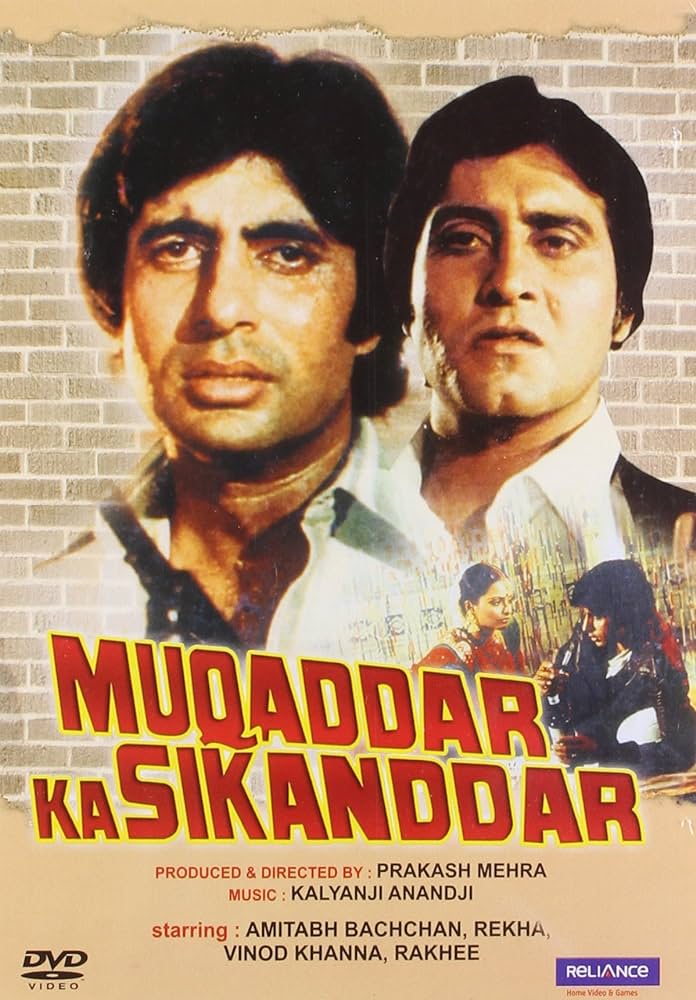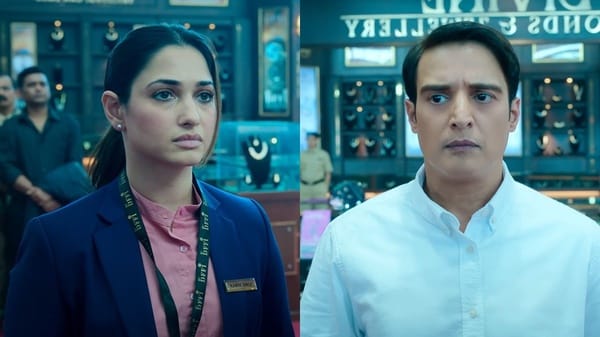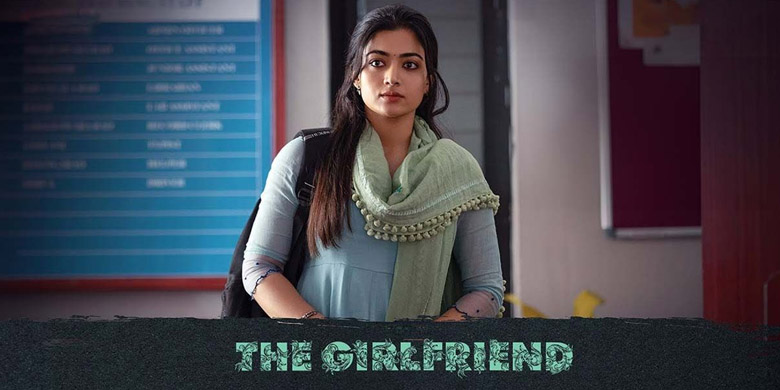Spoilers ahead
Seemingly, Sikandar ka Muqaddar is a whodunnit. Who stole the diamonds? There is a robbery. There are three suspects. And there is a detective trying to solve this case who, based on his moolvriti, his instinct, is convinced that the thief is one of the three people he seems to have almost randomly picked. No actual evidence, no reasoning, but instinct, he says, is what drove him to identify the three suspects. As you’re watching, though, you can tell that something is not right. Daal me kuch kaala hai.
As you’re watching, though, you can tell that something is not right. Daal me kuch kaala hai.
As one has probably already guessed, director Neeraj Pandey crafts the name of his film from Muqaddar ka Sikanddar, a 1978 Amitabh Bachchan starrer action crime drama. Muqaddar’s (fate) Sikandar (conquerer), the movie explains, is the one who is able to find joy in sorrow, and flow with the ups and downs of life. Muqaddar’s Badshah, as Kader Khan describes it in MKS. Amitabh Bachchan’s Sikandar – an orphan who is being flung around by life – is seen smiling at these words, just after he has buried his mother.
But that’s probably where the similarities end between the two films. There is no wise fakir in Sikandar ka Muqaddar. Which, in itself, isn’t such a bad thing. Sikandar isn’t an orphan, which seems like a deliberate plot detail, although he does fall on bad times when he is suspected as a thief. He avows his innocence, only to have it fall on deaf ears. Investigating Officer Jaswinder Singh (Jimmy Shergill) refuses to budge from his moolvriti. He is sure that it is one of Sikandar Sharma, Kamini Singh (Tamannah Bhatia) or Mangesh Desai (Rajeev Mehta) who has stolen the diamonds.
Flair for the dramatic
SKM has a flair for the dramatic. Neeraj Pandey’s (and Vipul Rawal) dialogues remind you of a tough Hindi school textbook that his characters, especially Shergill, have inhaled, and which, to their credit, they deliver incredibly well. It attempts to imitate a thriller, except it’s not a very convincing imitation. If it weren’t so serious, it could have been an excellent commentary on the trope of the honest police officer, the bad thief, and the Tom and Jerry chase it orchestrates.
As Shergill – with an immaculate record of identifying all culprits in all cases where he was IO – proceeds to arrest his suspects and tries to scare them into telling the truth, he finds himself up against a wall. He can’t seem to make any headway, even as Sikandar mocks him to ask if those were the tactics he used to get people to “confess” to crimes. He – hands tied, but with a smile on his face, in true Muqaddar fashion –predicts that one day Shergill will realise that Sikandar is not the thief, and that day he’ll apologise to Sikandar, mardon ki tarah, aankhon me aankhein daalke.
He – hands tied, but with a smile on his face, in true Muqaddar fashion –predicts that one day Shergill will realise that Sikandar is not the thief, and that day he’ll apologise to Sikandar, mardon ki tarah, aankhon me aankhein daalke.
Cut to 15 years later, when, on a particularly bad day, Shergill is both fired from his job, and divorced from his wife, and politely told by his meek bartender that he is the most ‘haraami‘ man he has ever met, we find out that, in fact, Shergill was wrong about Sikandar Sharma. That he had been on a wild goose chase, but now he wanted to make amends, and give Sikandar the apology he is owed. This is twelve years after the court had already acquitted him. There wasn’t enough evidence then, and the day of their hearing they had a particularly “strict” judge presiding. She didn’t take well to Shergill’s absence, or to the absence of a credible investigation, and acquitted all three.
Basic instinct in Muqaddar ka Sikandar
The movie takes place in flashbacks. In between scenes of Shergill meeting to apologise to Sikandar, we see all the various things that happened in Sikandar’s life, thanks to Shergill. Because, as we slowly realise, even though the court acquitted everyone, Shergill always believed that Sikandar was the thief. His trusted his instinct, at the expense of losing his wife and eventually his job. He trusted it so much, that at the end when he calls his wife and tells her that his instinct was right, she quietly tell him that she always trusted him. It was he who wanted to be right to the world. If he were right, would he have been alone?
Pandey’s insistence on moolvriti almost makes it the fifth protagonist in this film. So much so, that he leaves many sub-plots midway. We don’t know much about Shergill’s life that could explain his obsession with keeping a 100% record or even his obsession with this particular case, or why Sikandar went to the lengths he did to take part in a theft. We don’t know anything about the third suspect, Mangesh – one doesn’t know why he is in the film, even though it was lovely to see Rajeev Mehta on screen – or what the reason was behind Kamini having quit her job at the jewellery showroom before.
Sikandar’s complicated storyline is supported by three characters, all women – Kamini Singh, who he ends up marrying after meeting her during the proceedings of the case, Tabassum (Zoya Afroz) who he meets when he escapes to Dubai, and Priya Sawant, a nurse (Ridhima Pandit).
Kamini’s own story is also loosely told, and in the interest of telling Sikandar’s story. The fourth woman in this film is Divya Dutta, who plays Shergill’s wife. It’s interesting that Sikandar had a whole army supporting him, while Shergill had almost no one, not even the bartender at his regular bar. Even when Shergill meets Sikandar to apologise, he narrates all that he orchestrated in Sikandar’s life, but we don’t get the juicy details of his own. It isn’t clear whether this was deliberate.
Life is what happens…
Overall, though, it’s an ambitious film. It leaps – even when its central characters don’t – and keeps you curious. Jimmy Shergill is such a delight to watch, spouting those difficult lines from behind his character’s overgrown beard, letting you believe that he is desperately seeking the thief. Avinash Tiwary returns after Laila Majnu, as an exhausted man, trying to do justice to his name. Tamanna Bhatia is also great as Accused Number 2, although her character is not well fleshed out.
Interestingly, he leaves the end open, almost a literal cliffhanger. There isn’t a neat culmination of events, probably Pandey’s nod to the unpredictability of life.
Interestingly, he leaves the end open, almost a literal cliffhanger. There isn’t a neat culmination of events, probably Pandey’s nod to the unpredictability of life. However, neither do Sikandar and Jaswinder end up as allies, despite the conditions that bind them, even when at least one of them attempts a friendship with the other.
Pandey’s busy plot tries to remind you that the real Sikandar is the one who knows, cliched as it may be, that life is what happens to you when you’re busy making other plans. If you can find companions in this stretch of life – like Kamini, Tabassum or Priya – then you might stand a chance at least having enjoyed whatever curveballs you get. Alexander, the Great, who was the original recipient of the moniker Sikandar, was deemed the greatest conqueror, having created a huge empire for himself, but who eventually succumbed to some version of typhoid or malaria that he couldn’t fight, alone in his deathbed.
The turn of events ki SKM often seems unrelated and long-winded, but seem like an ode to what happens to you in no real order, irl. Not a terrible watch though, if you want to delve into a thriller, but don’t want to think too hard.
About the author(s)
Himalika is slowly beginning to get the hang of being an adult, despite being a bad cook. She will take most things with a sense of humour and is constantly striving to infuse feminist practices in her research.







